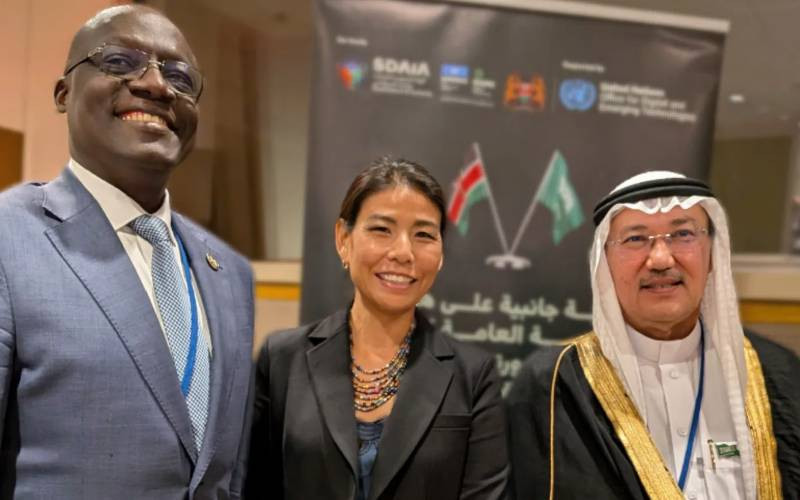
On the sidelines of the United Nations General Assembly this week, an African tech startup stole the spotlight from presidents and diplomats. Zindi, the continent's largest platform for data science and AI challenges, unveiled a new study showing that its users are not just learning to code - they are finding jobs.
The Country-Level Employability Report 2025 for Kenya, launched in partnership with Dalberg Data Insights, the International Centre for AI Research and Ethics (ICAIRE), and Kenya's Presidency, revealed that one in five Kenyan users on Zindi has shifted careers after joining the platform. The findings were presented during a high-level side event titled "Empowering Nations for Inclusive Prosperity in the Era of AI."
According to the study, out of more than 8,000 Kenyan users analyzed, nearly 1,500 reported a career change linked to their Zindi participation. For a job market strained by oversupply of graduates and limited opportunities, the results highlight how community-driven, applied learning is bridging gaps that traditional education systems often leave unfilled.
The report shows that over 80 percent of users with completed profiles advanced in their careers, compared with just 3 percent of those with incomplete profiles. Completing four or more challenges made users four times more likely to find employment, while those who collaborated in teams were three times more likely to land jobs. Even a single course on Zindi's platform increased employability outcomes threefold.
"These findings suggest that employability is increasingly shaped in communities of practice and through applied learning, rather than in classrooms alone," the report concluded.
With about 75 percent of Kenya's 55 million people under 35, and nearly 20 million in the 18-35 age bracket Zindi primarily targets, the report offers a timely solution to youth unemployment. By turning skills into jobs, Zindi appears to be providing not just training but a pathway to livelihoods.
Kenya's Special Envoy on Technology, Ambassador Philip Thigo, called it a turning point. "Africa is entering the Age of Intelligence with a unique advantage: people," he said. "This report makes it clear - Africa's talent is not waiting to be included, it is already contributing to the global AI economy."
Zindi co-founder and CEO Celina Lee echoed the sentiment: "The evidence is clear: young Kenyans engaging on Zindi are not only gaining skills but also translating them into jobs and livelihoods. Africa's data science and AI talent is a global asset."
Dr. Abdulrahman Habib, Director of ICAIRE, added that the findings show how local talent strengthens global innovation. "Kenya's experience proves that when young people solve real-world challenges, they not only build local capacity but also contribute to inclusive global AI development."
Beyond the statistics, the report signals how Africa is carving out space in the global digital economy. By connecting training directly with employment, Zindi is helping young people turn learning into livelihoods - a model that educators and governments may need to adopt as part of national AI strategies.
For Kenyan youth, the message is clear: participating in global AI challenges is no longer just about certificates - it could mean securing a paycheck.
 The Standard Group Plc is a multi-media organization with investments in media
platforms spanning newspaper print
operations, television, radio broadcasting, digital and online services. The
Standard Group is recognized as a
leading multi-media house in Kenya with a key influence in matters of national
and international interest.
The Standard Group Plc is a multi-media organization with investments in media
platforms spanning newspaper print
operations, television, radio broadcasting, digital and online services. The
Standard Group is recognized as a
leading multi-media house in Kenya with a key influence in matters of national
and international interest.




